
Global change biology 🌍🌡️🏭, ecophysiology, evidence synthesis, open science 🔓
I love all kinds of critters 🐠🦎🐸🪲🐝🦑🦈🪸
Opinions my own; he/him
🔗: www.thermalecologyalliance.org

🔗: www.thermalecologyalliance.org
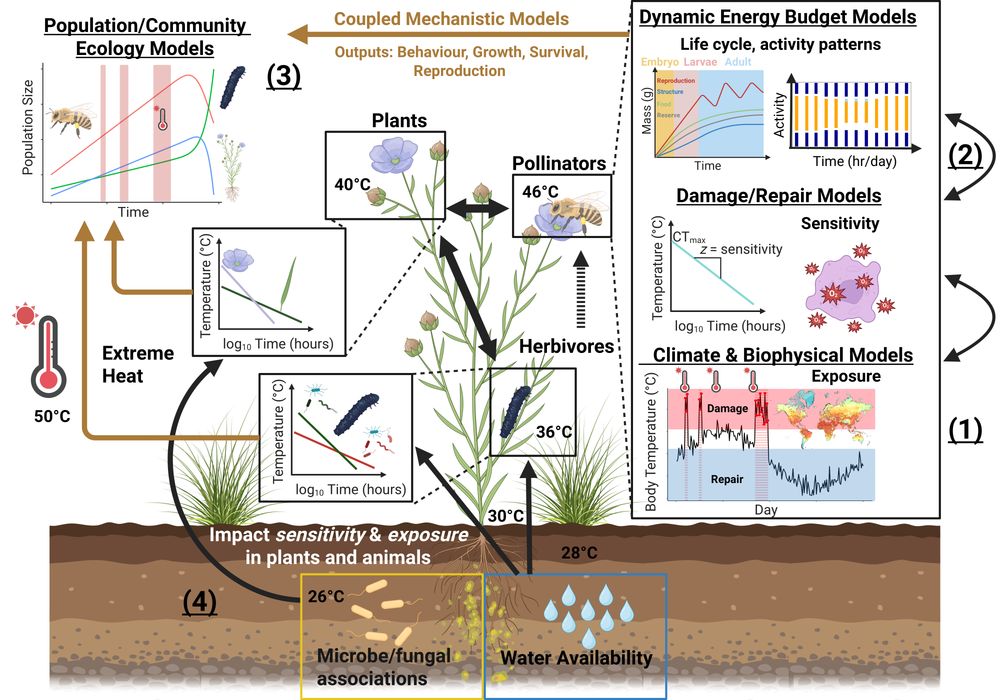
Some surprising results that help us better understand trade-offs and physiological mechanisms conferring thermal sensitivity
🐟🌡️
@natclimate.nature.com led by Anna Andreassen
@annahandreassen.bsky.social
www.nature.com/articles/s41...
🧪🐟🦑
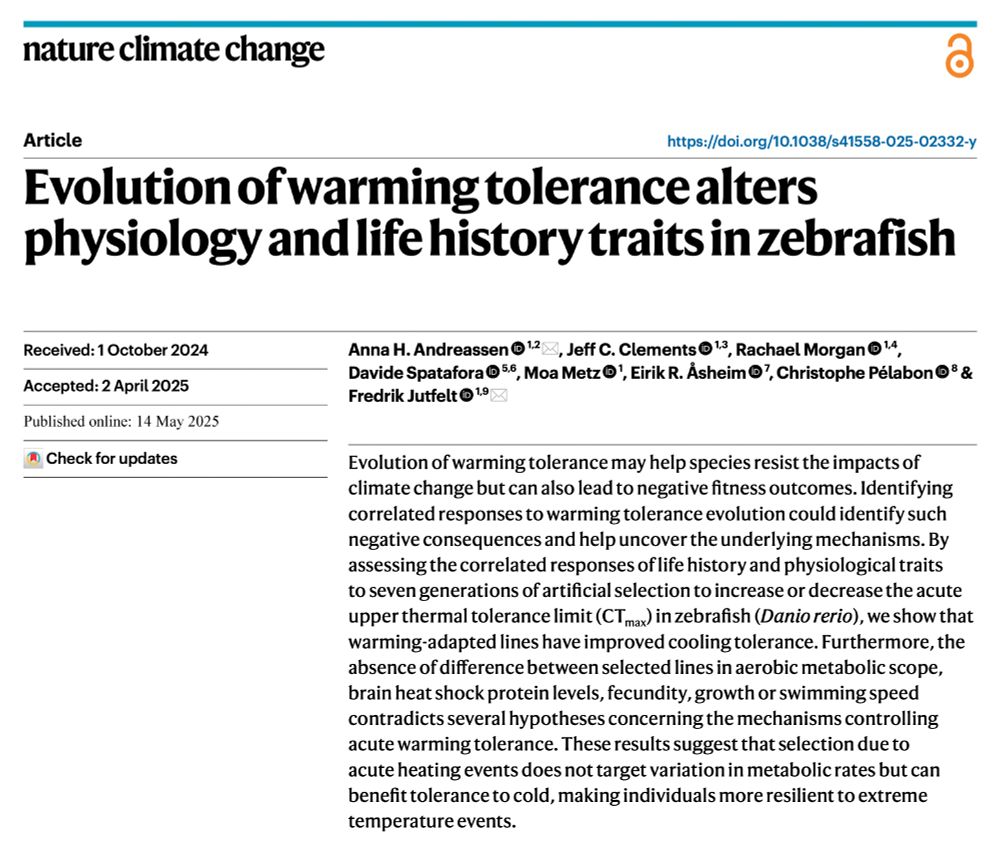
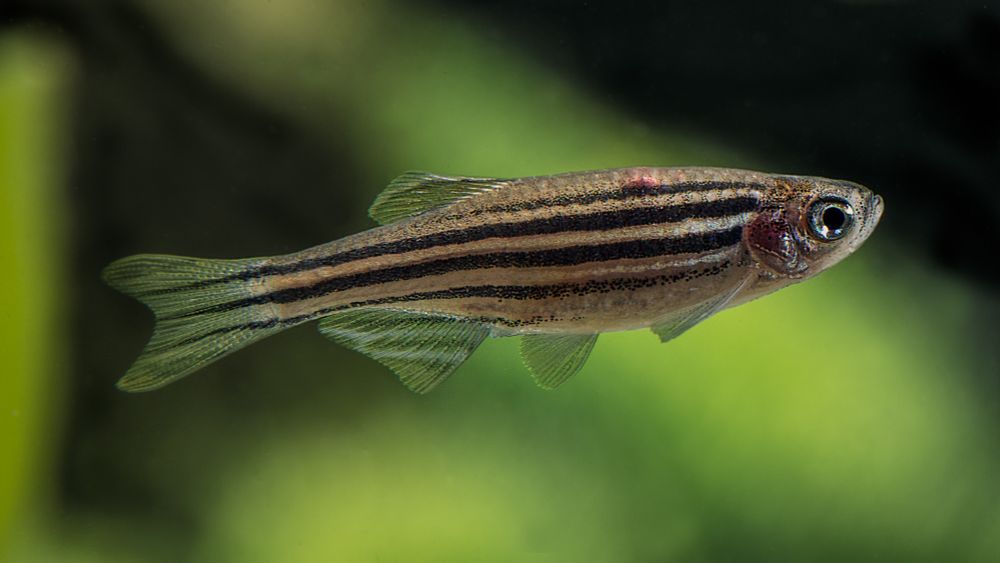
Some surprising results that help us better understand trade-offs and physiological mechanisms conferring thermal sensitivity
🐟🌡️

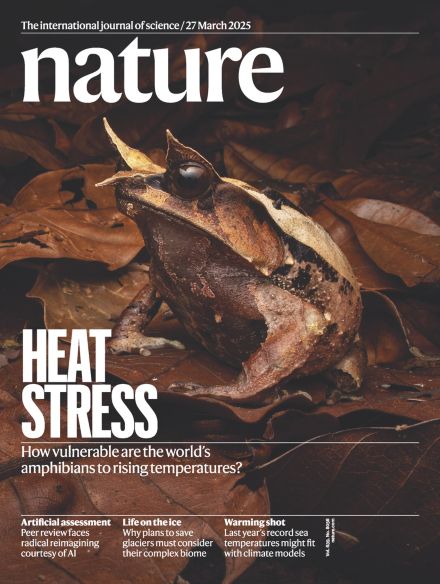

Our paper in @nature.com shows that many amphibians are already overheating, and many more species will be impacted by climate warming globally.
See the thread below for a digest 🧵
Link to the paper: doi.org/10.1038/s415...
#Nature
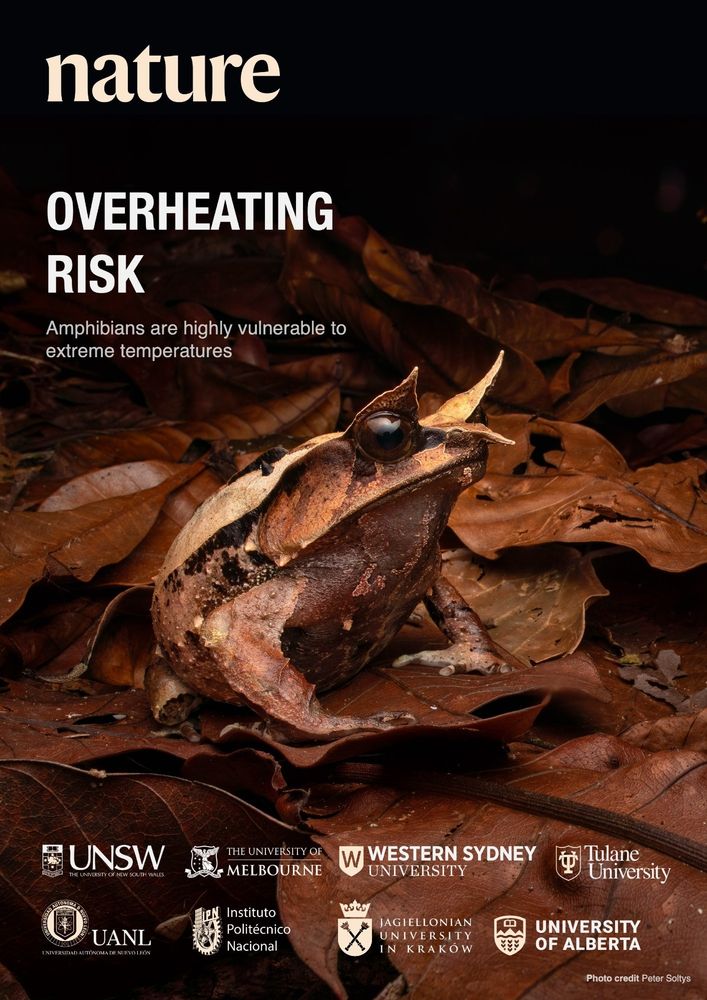
Our paper in @nature.com shows that many amphibians are already overheating, and many more species will be impacted by climate warming globally.
See the thread below for a digest 🧵
Link to the paper: doi.org/10.1038/s415...
#Nature
Paper: www.nature.com/articles/s41...
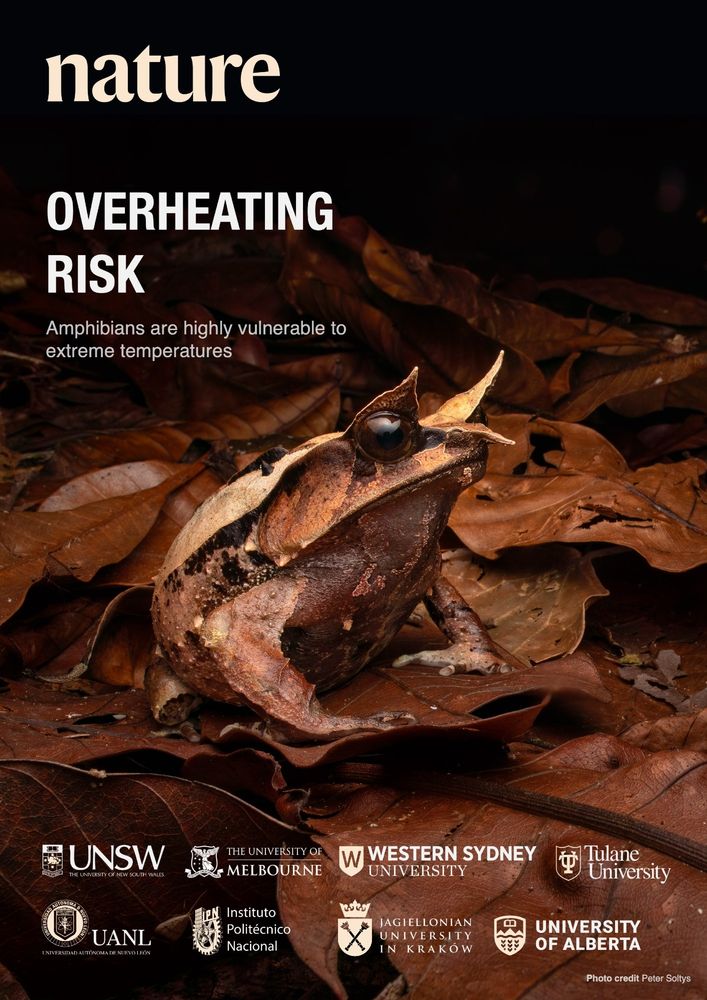
Paper: www.nature.com/articles/s41...
2% species are currently exposed to overheating even in shaded conditions, so water bodies are essential for them to buffer the effects of heat waves @patricepottier.bsky.social @nature.com www.nature.com/articles/s41...

2% species are currently exposed to overheating even in shaded conditions, so water bodies are essential for them to buffer the effects of heat waves @patricepottier.bsky.social @nature.com www.nature.com/articles/s41...







Check out the amazing research by
@patricepottier.bsky.social et al.
👇
www.nature.com/articles/s41...

Check out the amazing research by
@patricepottier.bsky.social et al.
👇
www.nature.com/articles/s41...


Consider submitting an abstract for a talk or poster in our session (A14) if you study the vulnerability of early life stages to environmental stressors! 🐣
The early bird registration deadline is May 16th.
You study early life stages? You like multiple taxa? You should consider presenting in our session: Vulnerability and adaptations of early life stages to environmental stressors (A14).
🚨Deadline : March 7th 🚨
See you at the #SEBCONFERENCE in Antwerp!✌️
@sebiology.bsky.social

Consider submitting an abstract for a talk or poster in our session (A14) if you study the vulnerability of early life stages to environmental stressors! 🐣
The early bird registration deadline is May 16th.
Please submit your abstracts for the next #SEBConference if you haven't already 👇👇
It's going to be a ton of fun!
We'd be very keen to receive more abstracts on the responses of early life stages and environmental stressors (session A14) 🙌
Check it out below
👇
You study early life stages? You like multiple taxa? You should consider presenting in our session: Vulnerability and adaptations of early life stages to environmental stressors (A14).
🚨Deadline : March 7th 🚨
See you at the #SEBCONFERENCE in Antwerp!✌️
@sebiology.bsky.social
Please submit your abstracts for the next #SEBConference if you haven't already 👇👇
It's going to be a ton of fun!
We'd be very keen to receive more abstracts on the responses of early life stages and environmental stressors (session A14) 🙌
Check it out below
👇
You study early life stages? You like multiple taxa? You should consider presenting in our session: Vulnerability and adaptations of early life stages to environmental stressors (A14).
🚨Deadline : March 7th 🚨
See you at the #SEBCONFERENCE in Antwerp!✌️
@sebiology.bsky.social

We'd be very keen to receive more abstracts on the responses of early life stages and environmental stressors (session A14) 🙌
Check it out below
👇
www.sebiology.org/events/seb-annual-conference-antwerp-2025/sessions-2025/animal.html
www.sebiology.org/events/seb-annual-conference-antwerp-2025/sessions-2025/animal.html
You study early life stages? You like multiple taxa? You should consider presenting in our session: Vulnerability and adaptations of early life stages to environmental stressors (A14).
🚨Deadline : March 7th 🚨
See you at the #SEBCONFERENCE in Antwerp!✌️
@sebiology.bsky.social

You study early life stages? You like multiple taxa? You should consider presenting in our session: Vulnerability and adaptations of early life stages to environmental stressors (A14).
🚨Deadline : March 7th 🚨
See you at the #SEBCONFERENCE in Antwerp!✌️
@sebiology.bsky.social
‘We believe that the future of preprints is bright, and community-driven initiatives, such as EcoEvoRxiv, will play a crucial role in the future of scientific publishing.’
tinyurl.com/4tpbj859

‘We believe that the future of preprints is bright, and community-driven initiatives, such as EcoEvoRxiv, will play a crucial role in the future of scientific publishing.’
tinyurl.com/4tpbj859

